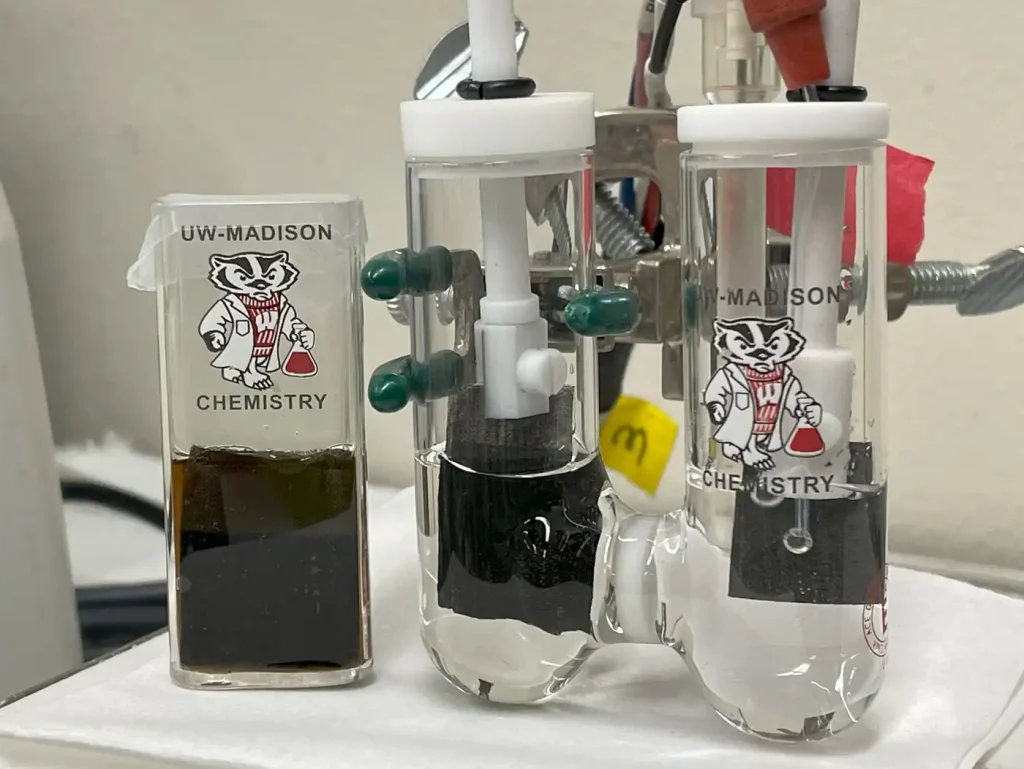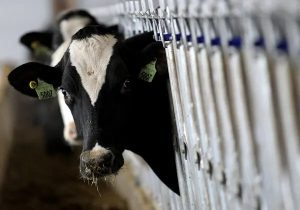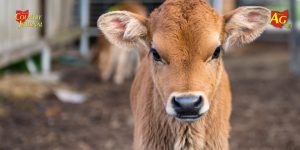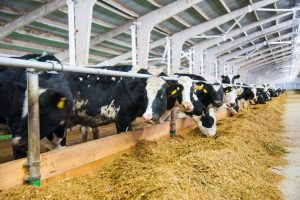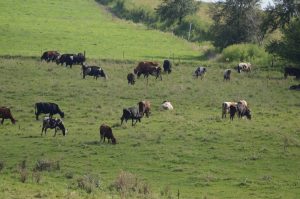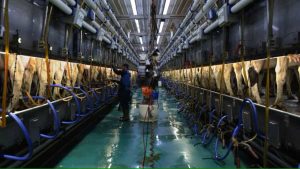
Researchers at the University of Wisconsin-Madison say they have developed a simple, efficient process for removing ammonia from livestock manure. The method is still in the testing phase, but scientists say it has the potential to significantly reduce the environmental impact of applying manure to farm fields.
Ammonia in manure contributes to the formation of nitrous oxide — a greenhouse gas — when applied to soil. The chemical is also a source of nitrate water pollution.
UW professor Song Jin said researchers took manure from a dairy farm and inserted a porous metallic electrode into the liquid in a lab. The resulting electro-chemical reaction captured ammonium and potassium ions in the electrode.
They then placed that electrode in a clean salt solution with a second electrode and applied an electrical charge to release the trapped nutrients, which can be dried to use as a fertilizer.
“We just did the simplest possible thing by just scooping up the the manure and urine that you can get from the farm and right away it worked,” said Jin. “We were very happy to see that it worked.”
UW-Madison professor and manure expert Rebecca Larson said many technologies to capture ammonia from manure are expensive and inefficient to operate. This proof-of-concept process appears to be more cost-effective.
“They were able to recover not only the ammonia nitrogen, but they’re able to convert organic nitrogen through the process into nitrogen so that we can collect it as well,” she said. “That’s not something we’ve been able to do with any other technology.”

An environmental analysis by Larson determined a 1,000-cow dairy farm could capture 50 percent of ammonia from manure, significantly reducing the environmental impact of nitrates.
Jin said the ammonia capture can be increased by subjecting the manure to the process more than once.
There are other nutrients and byproducts captured in the process, according to Jin. The electro-chemical reaction also creates hydrogen which can be used as fuel or made into hydrogen peroxide, a common disinfectant.
A cost analysis suggests the process could be bring in revenue for farmers. “The chemical we produce, the hydrogen peroxide, in fact is very valuable,” said Jin.
The process could also pair well with biodigesters now used to capture methane, a potent greenhouse gas, from manure, he added. Biodigesters don’t capture ammonia but they leave behind an effluent that could undergo the electro-chemical process developed at UW-Madison. Further research will examine that possibility, said Jin.
Researchers have applied for a patent on the process which has so far only been done successfully in the laboratory.
Scaling up to a farm-sized process would take time and money.
“We see a lot of things at lab-scale that might not make it all the way to full-scale,” said Larson. “But I’m particularly excited about this. We don’t have a lot of ways to capture ammonia that have been successful before.”
Larson said the research has generated “more than the usual” interest since it was published earlier this month in the journal Nature Sustainability.
